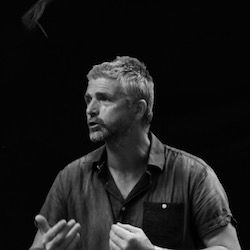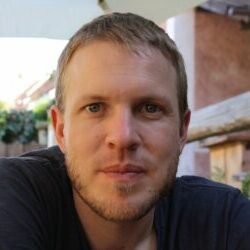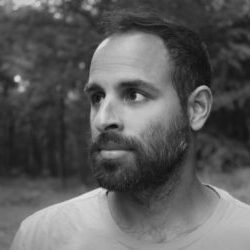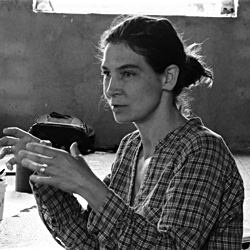Contact Us
To Apply
Organising and strategizing for transformative power
This training weaves together learning from our ‘Ecology of Social Movements Training’ with modules on community/political organising and the new municipalism.
We’re living at a historical point of disruption which contains both great peril and promise. The stalled engine of neoliberal growth, bankrupted political leadership, an increasing sense of distributive injustice, and the fierce urgency of the ecological now are the cracks out of which something new can emerge.
Built around the core of our Ecology of Social Movement training, this is an opportunity for experienced activists and organisers involved in movement thinking and practice from across Europe. We’ll inquire deeply into how our organisations and networks relate to the wider ecology of activism within our movements – and how these movements relate to wider struggles in the ever changing cultural, socio-political and ecological context. Participants will engage in deep analysis of their own movement practice and ecology. They will gain skills and understanding related to contemporary practices in community and political organising, as well as exploring the challenges of building transversal movements that connect diverse struggles, issues and approaches.
Facilitated by an international team of movement organisers and thinkers, we’ll learn to make our activism and organising more powerful and transformative.
Ecology of Social Movements
This core element of the training aims to help us understand the opportunities and threats of this crucial moment and to empower our efforts to contest our future. We’ll explore the life cycle of social movements and seek to learn from social movement history. We’ll survey theories of social change, identifying tensions and complementarities. We will increase our skills in strategising, planning and working for change in the complex ecologies and systems of movements and societies. And we will ask how big picture thinking can inspire and empower our work together.
The course blends a participatory inquiry methodology with the Ulex team’s framework for strategic analysis and deeper political reflection. Participants will engage in deep analysis of their own movement practice and ecology. The training will support the development of creative and strategic responses for radical social change.
This course involves deep and critical thinking, so participants should:
We will select participants to bring together a range of people from diverse movements and across Europe to share and learn from each other.
We will explore:
Key areas of study and reflection include:
Theories of Social Change
Movement Seasons and Cycles
Movement Ecosystems
Planning and Strategising
We won’t just explore theories. We will also ask what we do with them – personally and collectively. This course will help us to think afresh and to gain perspective. We will explore the formation of political identities – exploring how they serve us and how they hinder us. We will ask: How can we learn to strategise in a way that acknowledges the partial and provisional nature of our views and analysis? How can we develop a strategic approach that is responsive and in which on-going learning remains integral? How can we construct political identities that are genuinely empowering? And how can we develop campaigns, organisations, and movements with significant impact for systemic change?
Community Organising and Social Transformation Modules
Community organising is about building power from the ground up. It brings people together to take collective action on their shared concerns. Starting from local problems and everyday injustices, it has the potential to strengthen people’s sense of agency, build solidarity, and foster leaderful communities. We’ll explore how politicisation can build from action on local concerns to the mobilising of new constituencies seeking radical structural transformation.
While activism and community organising often share goals of social transformation, they can often apply divergent practices, strategies and analysis.
We’ve found an increasing interest in community organising methods amongst many of the activist networks we’ve been working with. They seek a more embedded approach and the tools and skills to mobilise and engage more diverse constituencies.
At the same time, we’ve also been encountering many community organisers who feel their practice falls short of the level of politicisation and mobilisation they aim towards. Often the political ‘neutrality’ the methods can involve leave community power tackling local issues, while failing to confront deeper structural injustice.
These modules will seek to bring community organising skills into a clear political framework, in a way that can enhance activist practice and extend the scope and ambition of community organising.
Community organising depends on key skills for reaching out beyond the circle of usual suspects. It offers methods for really listening for what matters and motivates people. It shares tools for connecting people and helping them organise to empower collective action. This training will share these key skills and the frameworks we can use for applying them.
We’ll combine community organising with political analysis, to bring fresh and powerful approaches to social change practice.
Venue
This course will be hosted at La Solana, a venue close to the Ulex Project centre that we are using to host rescheduled courses that were impacted by the Covid pandemic. Venue details to follow.
In the solidarity economy:
(See details of our approach to radical economics here)
Contact us
to apply

Location:
G has been involved in social movement organising and education since the late 1980’s. He is a highly regarded trainer and has designed numerous training programmes covering areas such as psychosocial resilience in activism, the ecology of social movements, and leaderful organising. As a founding member of the Ulex Project, he is known for highly innovative work blending pedagogical methodologies. This holistic approach to activist learning has inspired numerous training initiatives across Europe. He currently steers the strategic development of the Ulex Project and its social movement capacity building programme.

Location:
Hilal Demir, an anarcha-queer DJing at home is an activist, trainer, facilitator for 20 + years and has experience on organizing, strategizing on nonviolent direct action, campaign and social movement levels, working with power, active solidarity, resilience, repression and security. She is passionate about leading informal learning experiences, community organizing, group dynamics and organisational cultures, supporting activists and organizations to build long lasting transformative social movements for a just future.

Location:
Steve has 20 years of experience working as a community, union, and political organizer in both the United States and Europe. He currently lives in Prague, and works on several trans-European and transatlantic organizing initiatives. Tracing his roots to the US labor movement, he made the transition to political organizing in 2010 when he went to work for the Working Families Party (WFP). In 2014 he moved to Europe, but he continues to support US-based organizing at the WFP, and has also taken a leadership role in developing the European Community Organizing Network, a hub for the community organizing sector in Europe. He has developed a community of practice with the organizers and movement educators of the Grassroots Power Project, a movement support organization founded with the goal of shifting community organizing practice towards less-siloed, more transformative approaches. In this role he serves as a link between the US and European organizing sectors.

Location:
Working from Utrecht, the Netherlands, Pelle Berting builds movements for social and ecological justice. After an MA in Conflict Studies & Human Rights, he started out as conflict transformation trainer and method developer. Realizing the climate crisis threatens the foundations for peace and justice, he entered a life of climate activism. Working as community mobiliser at Greenpeace Netherlands and through other engagements, he helped catalyze the climate justice movement and became skilled at campaign development, coalition-building, mobilisation, organising and (mass) action. Always helping people find their role, supporting grassroots initiative, bridging different movement perspectives, and building trust, leadership, and solidarity. In recent years, he gravitated more and more towards issues of land justice – land rights, ecosystem restoration, the commons, and agro-ecology. His current role at Greenpeace is to grow the agro-ecology movement in the Netherlands and beyond.

Location:
Paul is a mediator, facilitator and trainer, with a depth of experience supporting groups through conflict, difficult decision making and the process of developing their systems and ways of working together. He is focused on supporting groups and projects who are working for social and environmental justice, and has also worked as a community mediator. Paul is part of the Navigate collective and is based in England. He draws on a number of approaches in his work (including Restorative Circles, Convergent Facilitation, Nonviolent Communication (NVC), Aikido and others), and is currently exploring ways to draw on these processes and principles to support movement building specifically. He is passionate about helping people to come together, organise collective power and find ways forward that genuinely work for all.

Location:
María worked for the Red Cross in community development, strengthening civil society, education, and food security in Latin America and Africa. Building on her studies in social psychology and international development, she studied Alternative Economics at Schumacher College, UK. This led her into work on organisational change with NGOs and grassroots movements. María specialises in complexity and participation applied to organisations: organisational structures and culture, emergent strategy, leadership amongst others. She co-founded The Eroles Project, a learning for action project and La Bolina, a systemic project looking at repopulation, inclusion and agroecology. María´s co-authored: Small is Important: Learnings from an integration and regeneration Project. Factores Clave para la Acción Reflexión Colaborativa, Enfoques y herramientas participativas en la cooperación al desarrollo, Activism and spirituality.

Location:
Tashy Endres has 18 years of experience in movements for social and spatial justice. This includes long-standing involvements in the movement of unemployed and landless workers in Buenos Aires, Occupy Wall Street in New York City, Decolonizing Architecture in Bethlehem, Kotti & Co (a tenants initiative in the Berlin social housing system), Berlin Rent Referendum and the Jumpstarting Working Group of Expropriating Deutsche Wohnen & Co in Berlin, which she/they co-founded and is currently active in. Tashy works as a political educator, facilitator, trainer and strategy coach in social movements and political organisations in the fields of transformative (community) organizing, social justice and critical diversity, nonviolent communication and conflict transformation through an intersectional lense as well as regenerative organizing and activism.

Location:
Meera is an activist, facilitator and community builder. After 2 decades of working in activism and non-profit work on climate justice, racial equity, children’s rights, and human rights across her native Pakistan and now home Europe, Meera realized that we can’t move the needle on the things that matter if we don’t take the time to heal our relationships with each other. This led Meera down the path of developing her theory and praxis around what she calls a Culture of Care. Her goal in this work is to see people, communities, and movements become greater by centering empathy and building systems of accountability, support and care. She’s had a long and varied career, doing everything from community organizing, to guiding non-profits through policy, visioning and strategic planning processes, to negotiating with the United Nations, to scoping and booking indie bands for green musical festivals. Her proudest professional accomplishment has been doing this much-needed work of creating work environments and spaces where people can be their whole selves. Her work as a grassroots activist and community organiser has given her keen insight into what leads to transformative change. She takes an intersectional feminist lens when developing and delivering solutions.

Location:
Kyle Sawyer (they/he) is an anti-oppression facilitator and educator specializing in working with individuals and organizations on how to turn privilege into change. He is a trans, queer, mixed-race, white-passing individual. With over a decade of experience Kyle founded Building Allies in 2013 and developed the term Active-Ally, someone who witnesses injustice and responds to it in any situation. Kyle has worked with teachers, nonprofit organizations, students, therapists, social workers, community members, family members, and many others on learning how to be Active-Allies through an intersectional lens.

Location:
An Maeyens (she/her) is a facilitator and trainer with over two decades of experience in grassroots movements. She specialises in creative, inclusive agenda design and brings deep expertise on group culture, power dynamics, and transformative learning. Starting of in the anti-globalisation movement she has trained thousands in civil disobedience, supported international coalitions, and developed multilingual training programmes and toolkits. Her work spans movements, cultures, and countries, guided by a commitment to care, accessibility, and leaderful organising.

Location:
Ari’s activism began in 2002, at age 16, as a Bosnian refugee in Canada, where they founded and coordinated a group for LGBTIQ high school students and allies. They were a co-founder and leader at kolekTIRV in Croatia and Trans Network Balkan, involved in community organizing, advocacy, program management, team coordination, capacity building, education, media work, campaigns, events, fundraising, etc. In 2024, they joined the Supervisory Board of the Croatian Trade Union Collective of United Precarious Workers and Activists (SKUPA).
Beyond the Balkan region, Ari served as a Board member at Transgender Europe (TGEU), where they held roles as Secretary, Treasurer, and later Co-chair. They have also been a trainer with the Center for Artistic Activism and served on the Advisory Committee and since 2022 as a Community Care Facilitator at FRIDA — The Young Feminist Fund. Since 2024 they are the Operations Manager at Global Philanthropy Project.

Location:
Sergio (all pronouns) was born in Romania and migrated to Germany in the early 2010s. In the past, he was a social worker with homeless people and a social consultant for Eastern European migrants for various organisations. Trained as a filmmaker, he spent two years making a documentary about the ‘civic reawakening’ in Romania and the waves of protest it brought with it. In connection to this, Sergio is currently co-steering the development of an online open-source participative knowledge production platform on activism in Romania. Over the past nine years, Sergiu has offered his skills to various journalists, grassroots collectives and campaigns, mostly working within the labour rights, climate justice, international solidarity and anti-authoritarian movements in Germany and Romania. Nonetheless, his biggest focus since 2020 has been his work as an organiser with the anarcho-syndicalist Free Workers Union, where he focuses mostly on organising Romanian migrant workers on construction sites, in factories and in the agricultural field.

Location:
Linzy Na Nakorn is a movement director, politicised somatics practitioner, community organiser and facilitator. For the past decade she has been facilitating movement, body work and creating theatre, dance and participatory performance that advocates for and organises with communities in pursuit of housing, disability and racial justice. Her movement practice focuses on trauma-informed approaches to building resilience, capacity and joy via way of the body for personal, interpersonal and community sustainability. Linzy was a Co-Director of The Big Ride for Palestine in partnership with The Gaza Sunbirds, Native Woman Ride and Middle East Children’s Alliance; using cycling as a tool for mobilising active solidarity and in support of campaigning for the rights and self-determination of the Palestinian people. Linzy is part of a UK network of activists and artists advocating for Radical Care – supporting organisations, researchers and institutions to work towards system change in societal approaches to labour, leadership and access.

Location:
Jeroen (he/him pronouns) has been involved in grassroots social movements for more than two decades now, starting back when he was fifteen. Throughout the years the fights for “climate justice” and “migrant justice” have been consistently on top of the list of struggles that make his heart beat faster. A key transformative moment for Jeroen was reading Paulo Freire’s Pedagogy of the Oppressed. Freire’s revolutionary pedagogy gave him a language to support the creation of emancipatory learning environments, rooted in a desire for collective liberation. Jeroen has also been exploring in depth Boal’s Theatre of the Oppressed and Joanna Macy’s The Work That Reconnects among other methodologies to build his trainer’s toolkit. Inspired by the liberatory possibilities of these traditions, he started an organization with a friend, LABO vzw, based in Belgium, where he has worked as a trainer and campaigner between 2013 and 2023.

Location:
Ella brings more than 10 years’ external experience working with not for profit and community based organisations across diverse themes including: advocacy for migrant communities; local community engagement in national policy making; and structural relationships between poverty and disenfranchisement, and education and poverty. Immersed in critical theory in her early 20s she brings a holistic and questioning approach, and is passionate about systemic solutions that centre relationship and interconnection between ecology and society. A long standing member of the collective, Ella has been part of the core team since the inception of the Ulex Project. Her work bridges facilitation, developing project partnerships, governance, strategy, operations, and project and programme evaluation. She has developed and overseen more than 70 partnerships with a range of different actors across European social movements.
Ulex: Latin (argelaga Catalan, gorse English) noun:
1. A thorny-evergreen flowering shrub, with a high capacity for regeneration and resilience. Its seedpods open in contact with fire and it reshoots from charred stumps. A successionary plant that grows well under challenging conditions. It improves soil fertility through nitrogen fixing, preparing the way for renewed biodiversity.
2. A traditional choice for igniting fires. Burns hot and bright.
3. A networked project adding nutrition and fertility to European social movements through training and capacity building. It kindles the realisation of social justice, ecological intelligence, and cognitive vitality.